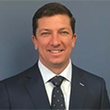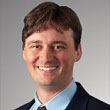External advisory board
Role
The role of the External Advisory Board (EAB) is to provide input and guidance to the Department of Civil and Environmental Engineering (CEE) to achieve the mission of educating undergraduate and graduate students to become leaders in the discovery and implementation of solutions to important societal challenges in the 21st century. Activities of the board include, but are not limited to, the following:
- Provide feedback on Department programs and activities to the Chair
- Promote and enhance the stature of the Department
- Review undergraduate and graduate degree programs
- Assist with job placement and summer internships
- Participate in strategic planning and the development of new initiatives
- Improve alumni relations and participation in Department activities
- Assist with Department fundraising and development efforts
- Participate in teaching activities (e.g., capstone design, visiting lectures, new courses)
Membership
The board consists of professionals from the academic, public and private sectors, with representation from relevant technical disciplines including Environmental Engineering, Geotechnical Engineering, Public Health Engineering, Structural Engineering, Water Resources Engineering. Based on nominations provided by CEE faculty and EAB members, the Department Chair appoints members to serve three-year renewable terms.
Meetings
The External Advisory Board meets once per year, typically in late May or June. In consultation with the EAB members, the Department Chair develops a meeting agenda that is distributed to all CEE faculty and EAB members prior to each meeting. The meeting gives an overview of department activities and accomplishments for the year and then includes a discussion of department priorities.
Advisory Board Members:

Chris D.P. Baxter, PhD, PE is a joint Professor in the Departments of Ocean/Civil and Environmental Engineering at the University of Rhode Island and was Chairperson of the Ocean Engineering Department from 2011-2017. He has been a member of the URI faculty since 2001 and is a registered professional engineer in Rhode Island. His research expertise is in the areas of marine geotechnics, fundamental soil behavior, coastal resilience, and offshore renewable energy. He is primarily an experimentalist, and has focused much of his research on characterizing unique or difficult soils such as sensitive marine clays in Maine, gassy clays from the North Sea (at the Norwegian Geotechnical Institute), weakly cemented sands in oil-bearing formations in the Caspian Sea, non-plastic silts in Rhode Island, and calcareous sands in Puerto Rico. With respect to coastal resilience, he has been actively working on the development of fragility curves for artificial dunes reinforced with geosynthetic sand containers. He is currently the lead investigator on a project funded by the Bureau of Safety and Environmental Enforcement (BSEE) to perform structural health monitoring of the Block Island Wind Farm, along with colleagues from Tufts (Eric Hines and Babak Moaveni), URI, the Rhode Island Coastal Resources Management Council, and the Norwegian Geotechnical Institute.

Erin Santini Bell, PhD, PE, is an Associate Professor in the Department of Civil Engineering at the University of New Hampshire. She received her BS in Civil Engineering from the Georgia Institute of Technology in 1996, and her MS and PhD in Civil and Environmental Engineering (Structural) from Tufts University in 1998 and 2003, respectively. She teaches courses in Rigid Body Mechanics (Statics) and Structural Design in Steel, and Structural Design in Masonry. Her research focuses on structural health monitoring and non-destructive testing. In 2007, she received an NSF Career Award for her research on "A Bridge Condition Assessment Framework Integrating Structural Health Monitoring and Intelligent Transportation Technology." She is a licensed Professional Engineer in the State of New Hampshire and has served as a member of America Society of Civil Engineers (ASCE) Committee on Methods of Monitoring and Evaluating Structural Performance and the Transportation Research Board (TRB) Committee AFF40, Dynamics and Field Testing of Bridges.

Yee Cho, PE, LSP, FEWRI, received the Tufts SOE Outstanding Career Achievement Award in 2016. She obtained her MS in Civil and Environmental Engineering and her BS from Tufts. Ms. Cho is an Inaugural Fellow and Founding Member of the ASCE Environmental & Water Resources Institute. She is featured as an extraordinary woman engineer worldwide in Changing Our World: True Stories of Women Engineers, ASCE Press, 2006. Ms. Cho’s career spanned both the public and private sectors, from the Massachusetts Department of Environment Protection, City of Boston environmental agency, and major engineering consulting firms, to the founding of a civil and environmental engineering firm, which she led for 26 years. Ms. Cho is a Massachusetts Registered Professional Engineer, Licensed Site Professional, and Emergency Medical Technician. She is a member of the Medical Reserve Corps. On sabbatical, she enjoys classes in harp, vocals, drums, rock band, and ballet.

Steve Estes-Smargiassi, MCRP, is the Director of Planning at the Massachusetts Water Resources Authority (MWRA). Mr. Estes-Smargiassi received his BS in Civil Engineering from the Massachusetts Institute of Technology in 1979, and his Master of City and Regional Planning (MCRP) from Harvard University in 1982. He is a planner and engineer with an interest in complex, multi-disciplinary projects. MWRA's water system includes source reservoirs, treatment facilities, transmission lines, and distribution system facilities and pipelines. The system has an estimated asset replacement value of over $6 billion. Mr. Estes-Smargiassi has over 20 years experience at MWRA and has led or participated in drinking water quality and master planning initiatives carried out by MRWA.

Roger Grenier, PhD, is Senior Vice President and leader of AIR’s Global Resilience Practice. He is responsible for developing AIR’s public risk strategy and leading risk reduction and resilience initiatives across the globe. He first joined AIR in 1999 as a research engineer and member of the team that developed the AIR Coastal Flood Model for Great Britain. He went on to other leadership roles within the company including managing the Client Service and Consulting group and AIR’s Product Management team responsible for product strategy and innovation. Prior to his return to AIR in 2018, he was director of catastrophe research and development at Liberty Mutual, where he was responsible for developing the Liberty view of catastrophe models and developing techniques to evaluate non-modeled catastrophe risk. He began his career in the engineering consulting field, working on a wide array of models for environmental, flood and coastal engineering projects. He received his PhD from North Carolina State University, an MS in Civil Engineering from Stanford University, and a BS in Civil Engineering from Tufts University (E88). Roger’s wife Diana (E88) and daughter Sylvie (A18) are Tufts graduates and his son Luc (A23) is a current Tufts student.

Jay Mitchell, PE, is a graduate of Tufts University (BS, Civil Engineering) and the University of Texas (MS, Construction Engineering and Project Management) and has been serving the Commonwealth of Massachusetts as a Deputy Commissioner in the Division of Capital Asset Management and Maintenance (DCAMM) since 2017 after concluding a 25-year career as an active duty officer in the Navy's Civil Engineer Corps. Throughout his career, Mr. Mitchell has served in a number of increasingly complex leadership roles. In his final assignment with the Navy, he was the Commanding Officer of the Naval Facilities Engineering and Expeditionary Warfare Center in Port Hueneme, California. As Chief Executive and senior Acquisition Official for an organization consisting of more than 1,000 engineers, scientists, and business professionals, he led the global delivery of over $~1.5 billion in specialized facilities engineering services, research and development. As Deputy Commissioner, Mr. Mitchell leads a team of ~120 design and instruction professionals delivering over $1 billion in capital improvements, deferred maintenance, and energy programs supporting all 29 public colleges and universities, health and human services, trial courts, state police, correctional facilities, and general administrative space throughout Massachusetts. He is one of six Deputy Commissioners serving on the Commissioner's Senior Staff guiding overall strategic direction and operations for DCAMM while working with State agencies to create and manage sustainable buildings to meet the needs of the citizens they serve.

Silas Nichols, PE, is the Principal Geotechnical Engineer for the Federal Highway Administration’s Office of Infrastructure. He has his BS in Civil Engineering from Syracuse University and MS in Civil and Environmental Engineering with a focus in Geotechnical Engineering from Tufts University. Mr. Nichols provides leadership and direction for the FHWA National Geotechnical Team through policy support, technical developments, and coordination with industry and professional groups. His experience is in both public and private sector engineering work. Professional experience includes design and construction services for numerous routine, and complex or unusual projects throughout the United States; development and delivery of instructor led and web based training for continued education of transportation engineers; development and delivery of university courses; invited and keynote presentations; authoring technical articles and editorial columns; and various levels of participation on technical and steering committees.

David Reckhow, PhD, has been on the Faculty of the University of Massachusetts since 1985, and recently completed a term as Interim Department Head of Civil & Environmental Engineering. From 2002 to 2005, he served as Director of The Environmental Institute on the Amherst Campus, as well as the Massachusetts Water Resources Research Center. Prior to coming to UMass, he was a Post-Doctoral Research Associate with the Compagnie Générale des Eaux in Paris. He has degrees from Tufts University (BSCE), Stanford University (MSCE) and the University of North Carolina at Chapel Hill (PhD). His current research interests include general aquatic chemistry, chemical oxidation of organic compounds in water, coagulation processes, removal of chemical pollutants in water, and aquatic organic matter in natural systems and drinking waters. He has special interests in trace organic compounds, disinfection byproducts and ozonation processes for drinking water treatment. He served for several years as North American Technical Editor of the international journal, Ozone: Science and Engineering. He was also a co-editor of the widely-used reference book, Ozone in Water Treatment: Application and Engineering, and a major contributor to the most recent edition of AWWA's Water Quality & Treatment. He has authored over 80 research publications. Several of these have been recognized with AWWA and IOA publication awards. He was also a recipient of an NSF Presidential Young Investigator Award. He has an active research program (currently PI on 8 research grants), and he regularly serves as a consultant to engineering firms, and industrial and governmental groups.

Emily Rubinstein, MPH, is Senior Director of Scientific Data Strategy at Aetion. Ms. Rubinstein received her engineering degree from Tufts University in 2005 from the Department of Civil and Environmental Engineering. Between 2005 and 2008, she worked as a Geotechnical Engineer at Mueser Rutledge Consulting Engineers (MRCE), working on projects such as Citifield and Tower 4 at the WTC. She holds a Master’s in Public Health from Columbia University’s Mailman School of Public Health (2009), in Epidemiology and Global Health. Ms. Rubinstein was drawn to epidemiology to solve water access problems. This led to work on the UNDP Millennium Villages project in Tabora, Tanzania, where she helped to design pit latrines based on water access data. Using applied engineering skills and data, Ms. Rubinstein has since worked with data at Pfizer to help understand under-enrollment of clinical trials by patients of color and helped found a company that uses data to better design clinical trials, which can help payers and regulators achieve their goals. Currently, Ms. Rubinstein helps to find data that fits the question, for payers, regulators, and budget impact models, including for SARS-CoV-2. Ms. Rubinstein has a passion for data and the story that data can tell.

Charles J. Russo, PE, is a dynamic engineering consultant to construction industry professionals. Charlie’s engineering practice over nearly three decades involves diverse applications of structural engineering and material science. His professional experience includes designing new construction, repairing and modifying existing structures, investigating performance problems and structural failures, and assisting in resolving construction-related disputes. During his time with Simpson Gumpertz & Heger, he served in senior leadership appointments as Division Head of Structural Engineering in Washington, D.C. (2006-2012), President (2014-2016), and Chief Executive Officer (2017-2021).

Damian R. Siebert, PE, is the Geotechnical Discipline Leader and a Vice President at Haley & Aldrich, Inc. He received his BS in Civil Engineering from Tufts University in 1998 and an MS in Civil Engineering (Geotechnical) from Northwestern University in 2000. During his 12 years at Haley & Aldrich, Mr. Siebert has participated as an lead engineer and project manager on a range of geotechnical and structural engineering projects, including permanent and temporary soil nail walls, mechanically stabilized earth walls (MSE), bridges, tunnels, pipelines, as well as buildings with both shallow and deep foundations. Particular expertise has been developed in the design of MSE walls, slopes, and support of excavation systems focusing on soldier pile and lagging, steel sheeting and slurry wall design. Mr. Siebert's structural experience includes working for both project owners and contractors in the preparation of design drawings and specifications. His responsibilities include analysis and design of retaining walls, buildings, culverts, subway stations, and lateral support systems. Temporary support system designs include steel sheet pile cofferdams, concrete slurry walls, soldier pile and lagging, and continuous steel sheeting. He is a licensed Professional Engineer in the State of Massachusetts.

Brian Zelenko, PE, is a Vice President with Parsons Brinckerhoff and serves as Practice Leader for Geotechnical Engineering and Tunneling for the Eastern U.S. He received his BS in Civil Engineering from Tufts University in 1984, and MS degree in Civil Engineering (Geotechnical) from the University of California at Berkeley in 1985. Mr. Zelenko has worked on a number of major projects during his career, including the Central Artery/Third Harbor Tunnel in Boston, the Woodrow Wilson Bridge crossing the Potomac River in Maryland and Virginia, and the Red Line Light Rail Transit project in Baltimore, Maryland. Mr. Zelenko is a Past President of the ASCE National Capital Section and he has served as Chairman of the TRB Tunnels and Underground Structures Committee since 2008. Prior to joining Parsons Brinckerhoff in 2009, Mr. Zelenko spent 13 years with Haley & Aldrich and 10 years with URS in Boston and Washington, DC. He is a licensed Professional Engineer in the District of Columbia, and the States of Maryland, and Virginia.